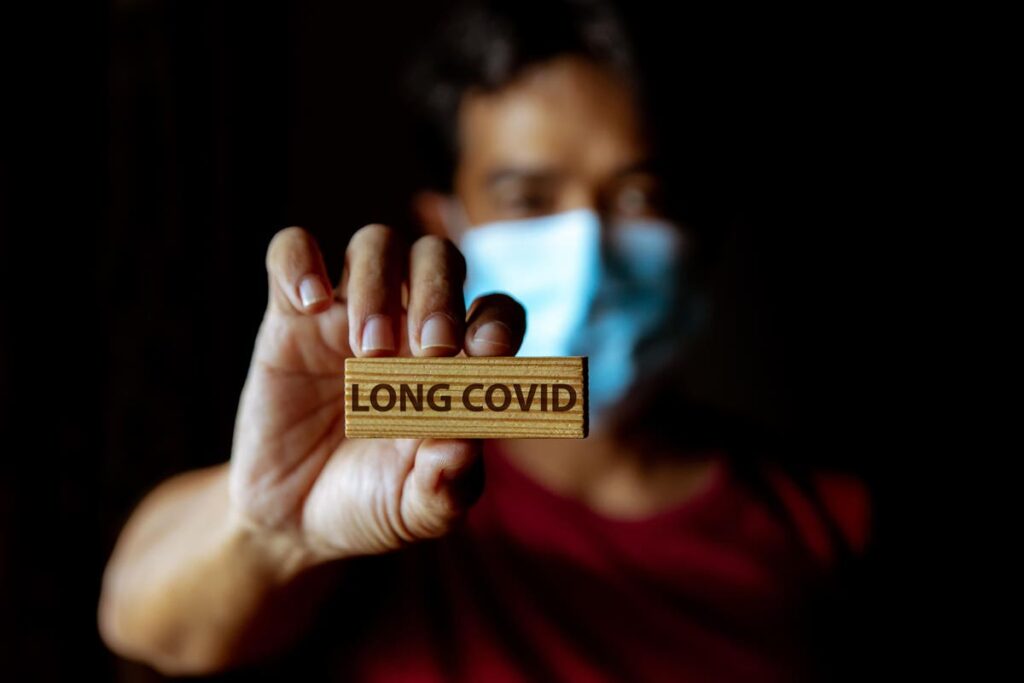InnovationRx is your weekly digest of healthcare news. To get it in your inbox, subscribe here.
Doctors are still trying to make sense of long Covid, which is still impacting hundreds of thousands, if not millions, of people who were infected during the pandemic. The persistent symptoms often leave patients suffering, with no real good treatment options. But there may be some hope on the horizon: researchers at the Fred Hutchinson Cancer Center and the Allen Institute have discovered that at the root of long Covid may be an overactive inflammatory response. This builds on previous research which also suggested a link between an inflammatory response and long Covid. The type of inflammation is similar to that seen in rheumatoid arthritis, and it’s possible that for long Covid patients with this type of inflammation, treatments used for that disease might be helpful here.
“We hope these findings provide features of long COVID that may guide potential future therapeutic approaches,” Fred Hutchinson infectious disease director Julie McElrath said in a press release.
Lawsuits Allege This Startup Ripped Off Millions From Vendors. Andreessen Horowitz Backed The Former CEO’s New Company Anyway
The venture firm made a repeat investment in Munjal Shah, but his previous company Health IQ is facing allegations of millions in unpaid invoices, tens of millions in debt — and one lawsuit is alleging fraud.
Read more here.
Pipeline & Deal Updates
Chikungunya Vaccine: A vaccine for chikungunya—a mosquito-borne infection with similar symptoms to dengue and Zika—could finally be on the horizon after promising results from a late stage trial were published in the Lancet on Monday.
Divestment: Drugstore giant Walgreens has sold its remaining stake in home infusion services provider Option Care Health for proceeds of about $330 million.
Neurology: Recursion announced this week that its phase two trial for REC-994, an AI-developed small molecule for Cerebral Cavernous Malformation, is now fully enrolled. Both the FDA and European Medicines Agency have given it an Orphan Drug designation.
Fertility: Oova, which has developed a kit that helps women find ideal times to conceive, announced that it has raised a $10.3 million series A round.
Genetic Medicine: Kate Therapeutics launched from stealth with a $51 million series A round co-led by Versant Ventures and Westlake Village BioPartners. The company aims to develop genetic medicines for heart and muscle diseases.
Taking ‘Smart Drugs’ Like Adderall Without ADHD Actually Decreases Productivity–Here’s How
Though college students are known to use prescription stimulants or “smart” drugs to enhance their productivity—including Ritalin and Adderall—a new study finds that using these drugs while not suffering from attention-deficit/hyperactivity disorder decreases productivity and increases the amount of time needed to complete tasks.
Read more here.
Other Healthcare News
Taurine – a nutrient found in top-selling energy drinks like Red Bull – could help slow down aging, according to a new study.
White House Drug Czar Dr. Rahul Gupta warns that opioid Deaths could increase to approximately 165,000 by 2025 if the Biden Administration’s proposed intervention initiatives aren’t implemented.
Light-to-moderate Drinking could improve long-term heart function by reducing stress, according to a new study.
Ride-share company Uber is adding healthy food, grocery and over-the-counter product deliveries for healthcare providers to send to patients through their ride-share services.
Health insurance companies are seeing their stock prices decrease as they report increased payouts for patients receiving minor surgeries that had been delayed during the pandemic.
Across Forbes
Taylor Swift Vs. Beyoncé: How These Super Stars Stack Up Against One Another
California’s $100 Billion Electric Bullet Train Will Be Fully Solar Powered
Meet ‘Heina’ Chen, The Secretive Executive Holding The Purse Strings At Binance
What Else We are Reading
Sexual Harassment Still Pervades Science (Scientific American)
The Growing Battle Over Infant Milk Allergies (The Atlantic)


